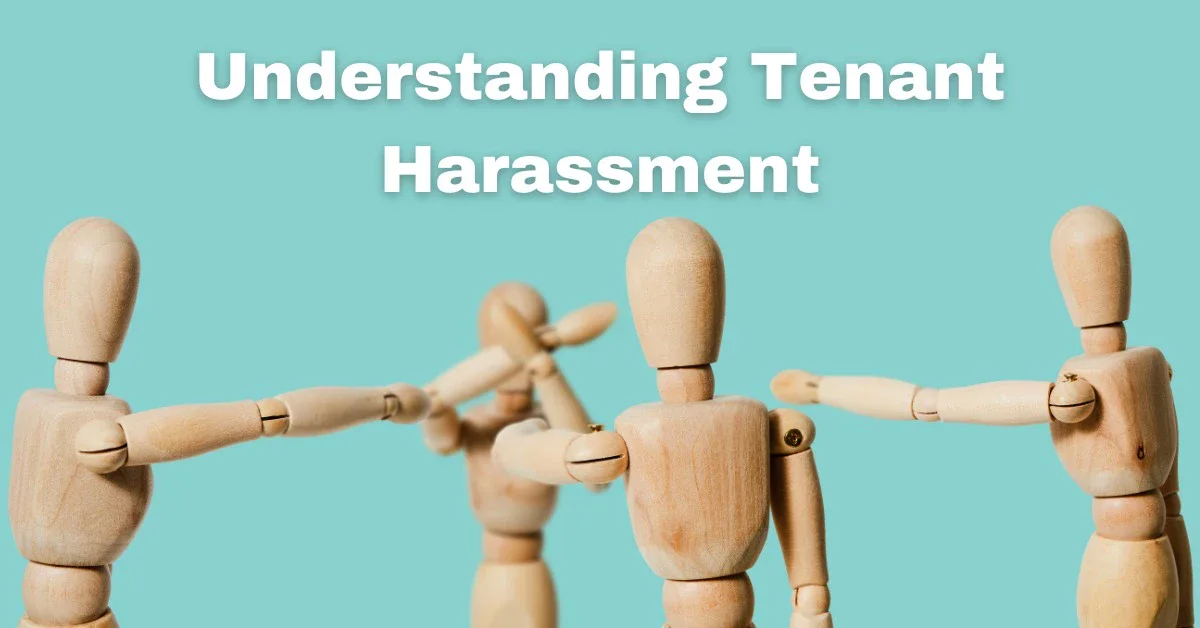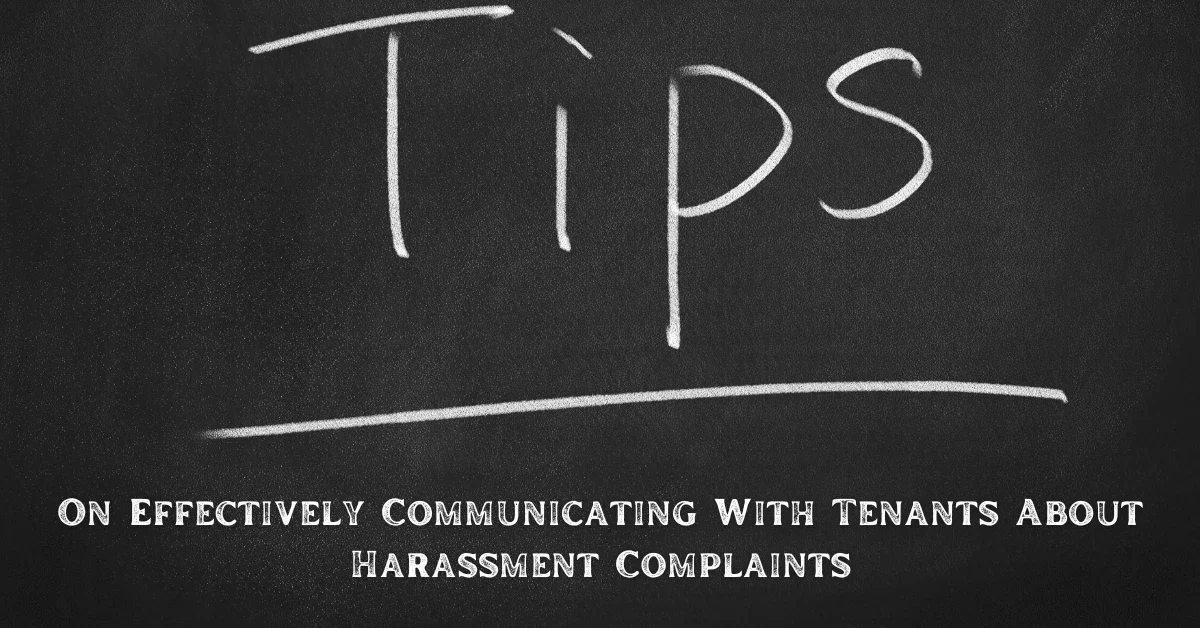

Dealing with tenant harassment can be a difficult and sensitive issue. If a tenant is harassing another tenant, notify the landlord and law enforcement immediately. This can include notifying law enforcement and the landlord, documenting any incidents, and providing the victim with support and resources. Landlords must also take steps to prevent future incidents from occurring, such as providing training or education to all tenants on appropriate behaviour and communication. By addressing tenant harassment promptly and effectively, landlords can create a safer and more welcoming living environment for all their tenants.

Tenant harassment is a scenario where a tenant(s) or an individual(s) harasses another tenant with the intention of making it impossible for them to enjoy their rented property. This harassment may include discrimination based on race, gender, or sexuality, as well as threats or abuse from the harassing party. Additionally, tenant harassment is unlawful under fair housing laws and can lead to serious consequences.
Tenant harassment is not limited to specific types of actions or behaviours. Rather, it can manifest in a variety of forms, including:
Read About: How Long Can a Landlord Leave You Without an Oven: My RightsThis involves the use of abusive language in a way that is meant to upset or intimidate other tenants. This harassment can occur over the phone, in person, or even online.
This involves the use of physical force to intimidate or harm another tenant. This could include physical assault, damage to property, and physical intimidation.
This involves the use of psychological manipulation to intimidate or harm another tenant.
Such forms of harassment can include gaslighting, cyberstalking, and repeated harassment.
This involves unwanted or unsolicited sexual advances or harassment that make another tenant feel uncomfortable or threatened.
This can also include physical contact, verbal harassment, and other inappropriate behaviours. Tenant harassment can take various forms and is often unlawful.
If you or someone you know has been the victim of tenant harassment, please report it to the relevant authorities immediately.
Landlords have a responsibility to ensure that their tenants do not harass one another.
Harassment may be in various forms like discrimination, physical or sexual intimidation, verbal abuse, or interfering with one’s peace.
To take legal action, the landlord needs to:
Once a tenant reports harassment, the landlord should investigate the matter to determine the alleged violation’s credibility.
If there is an issue, the landlord must take appropriate action, which may involve notifying the harasser that their behaviour is not tolerated and could lead to eviction if it persists.
The landlord should offer appropriate support to prevent the harassment in question.
Read About: How Can a Tenant Win an Eviction: Proven Strategies to Overcome Eviction Challenges
Landlords should create a culture where tenants feel free to discuss their issues.
Showing empathy and treating tenants with respect when they report harassment can help to build trust.
Even if the complaints may seem trivial, acknowledging them still sends the message that you take your tenant’s concerns seriously.
Use simple language so everyone can understand the policy and procedures for handling harassment.
Try to make the procedures and policies easily accessible to your tenants.
Read About: What Can Landlord Deduct from Security Deposit Colorado: Essential GuidelinesThe property staff should be trained on how to handle complaints and address tenants’ concerns effectively.
By following these steps, landlords can create a harmonious rental environment where tenants feel safe and respected.
Tenant harassment can take many forms, such as physical, verbal, or sexual harassment, and can include threats, intimidation, or discrimination on a protected basis.
Yes, a landlord can evict a tenant who is harassing others, but they must follow the proper legal procedures and obtain a court order.
If a tenant is being harassed by another tenant, they should document the incidents, report it to the landlord, and consider obtaining a restraining order.
Landlords can prevent tenant harassment by having clear policies in place, taking all complaints seriously, and addressing them promptly and appropriately. They should also provide education to tenants on appropriate behaviour.
Your tenant’s peace and security are your responsibility. If a tenant is harassing another, you need to act swiftly.
Foster a harmonious living environment by addressing complaints seriously, documenting incidents, and enforcing lease rules.
Remember, a safe, respectful community isn’t just the right choice—it’s good business.